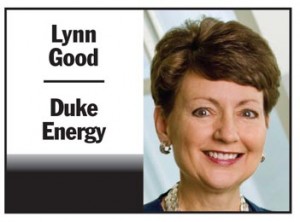Utility CEOs focus on climate change at electricity summit
 As one of the world’s most significant concerns, climate change was a major topic when utility CEOs gathered at this week’s International Electricity Summit in Japan.
As one of the world’s most significant concerns, climate change was a major topic when utility CEOs gathered at this week’s International Electricity Summit in Japan.
I was honored to represent the U.S. and Duke Energy at the summit. We acknowledged that there is no one-size-fits-all approach to address climate change. Each country comes at this issue based on its own unique circumstances that reflect its natural resources, economic profile, market structure and political dynamics.
Duke Energy has made steady progress in meeting this challenge and has reduced carbon dioxide emissions from its power plants by 19 percent since 2005. The U.S. electric sector overall is not far behind, with a 14-percent reduction.
Significantly lower natural gas prices and other factors have enabled Duke Energy to modernize its power plant fleet and retire 40 coal units across the Carolinas and the Midwest since 2011.
Today, we have a more diverse power plant fleet and reduced our overall environmental footprint. We have accomplished this while also keeping our South Carolina customers’ power bills about 20 percent below the national average.
The U.S. Environmental Protection Agency’s proposed “Clean Power Plan” creates new targets to reduce carbon dioxide. The plan includes some of the most far-reaching regulations for electric utilities ever, with carbon dioxide goals that vary considerably by state.
The proposal has started a debate over the EPA’s role in electricity system planning. Twelve states have filed litigation against the plan, and many more threaten to say “no.”
As this debate unfolds, we should recognize the progress utilities have made to reduce carbon dioxide emissions — and build on that success.
Ensuring we maintain and improve on the U.S. electric system’s extraordinary 99.9 percent electric reliability must be at the foundation of our actions. All options to produce, transmit and store electricity should be considered, driven by clear price signals and constructive government policy.
Economic considerations must be central to our decision-making process. Reliable and competitively priced electricity is fundamental to growing our economy and creating jobs. Our customers expect nothing less.
Our nation’s power plant fleet must include a mix of solar, wind, natural gas and nuclear plants. Clean and efficient coal will also be a part of our mix. Over the long-term, we should develop and implement new technologies to capture and store coal’s carbon emissions. We also must make our electric grid more resilient.
State regulators, with input from electric utilities, consumer advocates, industry and environmentalists, should retain their primary role in electric system planning. This approach ensures that we can strike the right balance and fully consider our nation’s regional differences.
My recent discussions with other CEOs from around the world has left me with a better understanding of the unique national differences we face. We also have much in common and deal with similar issues.
These include meeting customers’ rapidly changing expectations and finding new ways to add more renewables and back up generation to the grid. We are also operating in dated market structures in some cases and with uncertain government policies.
We are all challenging our engineers to add new capabilities to our grids so we can deliver our customers new energy efficiency products and services.
Japan is re-evaluating nuclear power after the Fukushima nuclear accident. Germany is working to add significantly more renewable energy. Utilities in all nations are focusing on their customers’ rates, and how to finance major construction projects needed to modernize their systems.
A complex issue like climate change requires a collaborative, multi-pronged approach that involves all stakeholders. We must continue to work together in forums, act on market trends and incorporate innovative technologies that we cannot even imagine today.
Lynn Good is the president and CEO of Duke Energy. Approximately two dozen electric utility CEOs from the largest power companies in U.S., Europe, Australia, Canada and Japan attended the International Electricity Summit in Okinawa, Japan, April 12-14.




























